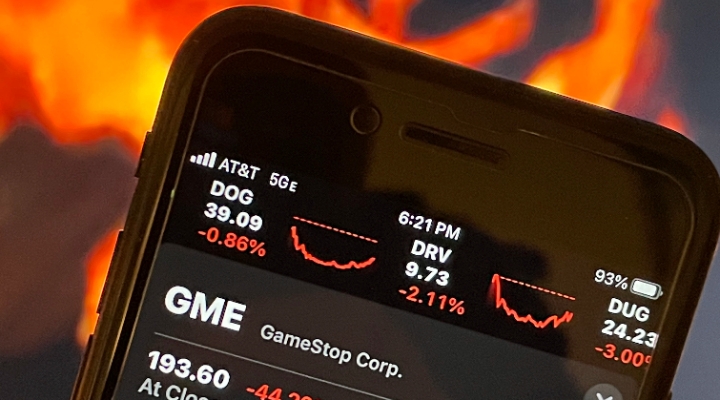On Thursday, Intel announced the acquisition of antivirus and security software maker McAfee for $7.7 billion in cash, or $48 per share. While this represents a 60% premium over Wednesday's closing price for McAfee shares, we do not believe Intel overpaid given our $42 per share fair value estimate for McAfee. We are leaving our fair value estimate unchanged for Intel and raising our fair value estimate for McAfee to the acquisition price as we expect the deal to pass regulatory scrutiny.
While this deal was unexpected, there is a compelling strategic rationale for Intel's offer. Intel believes that security is becoming increasingly important with the continued growth of internet connected devices, such as smartphones, tablets, and set-top boxes. By acquiring McAfee, Intel can add security features to its chips and hardware, which when integrated with software will provide more effective security solutions. Intel also has the opportunity to integrate McAfee's security software into its desktop and notebook chips. Intel already has built-in security features on its vPro enterprise platform, and the McAfee acquisition will significantly enhance Intel's capabilities in this area.
We believe that the deal is also another step by Intel to enhance and differentiate its platform, particularly in the mobile device space. Last year, the firm acquired Wind River Systems, a leading provider of operating systems for mobile devices, in order to support and provide a software platform for its Atom chips. By buying McAfee, Intel will be able to offer security enhancements to its microprocessors, as well as software solutions, that its competitors, including Advanced Micro Devices and ARM Holdings, won't be able to easily match. Years from now, the deal will either be viewed as keen strategic insight on Intel's part to emphasise security, or it will be considered an unnecessary acquisition. But given that the purchase price is only slightly higher than our fair value estimate for McAfee, we think the acquisition is a gamble worth taking.
On the McAfee side, the offer validates our view of the attractiveness of McAfee's security portfolio and rewards the firm's singular focus on the security space. The implications of this acquisition are undeniably negative for Symantec. Intel's stated vision of delivering security functionality integrated with its chips puts Symantec's endpoint security revenues directly at risk. Symantec's high-margin consumer security business, which accounts for 30% of the firm's revenue base, could be compromised if Intel is technologically and legally able to bundle McAfee's security solutions into PCs incorporating Intel's processors. Symantec's enterprise security portfolio should be more resilient to Intel's advances--functionality such as network access control, compliance, data loss prevention and identity and authentication services cannot be delivered on silicon, in our opinion. However, endpoint security remains the mainstay of Symantec's enterprise security business, and could become a drag on enterprise security revenue growth.
Potential suitors for Symantec might find the price hard to swallow. Symantec has many valuable enterprise security products, but an acquisitor would have to also pay for the firm's declining storage management business as well as a potentially compromised consumer business. Although AMD could be interested in an effective competitive response, it lacks the financial wherewithal to acquire Symantec. Enterprise technology and data centre vendors such as IBM, Oracle, Hewlett-Packard, and Dell could all be interested in adding security and storage management tools to their arsenals, but the product mix of Symantec's portfolio doesn't appear to be an ideal fit for either of these vendors. IBM has consciously distanced itself from commodity businesses (endpoint security), the consumer business would be a misfit at Oracle, and HP and Dell would be hard-pressed to pay a premium for security technology that could be bundled in Intel chips in the future.























